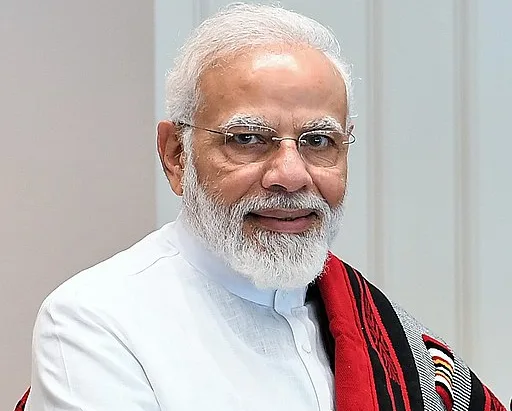Prime Minister Modi announces the imminent arrival of air taxis in India, following the directorate general of civil aviation’s new airworthiness criteria for vertical take-off and landing aircraft
At the second Asia Pacific Civil Aviation Ministers Conference held in New Delhi on September 12, 2024, Prime Minister Narendra Modi made a groundbreaking announcement regarding the future of transportation in India. Speaking at the event, Modi declared that air taxis will soon become a reality in the country, heralding a new era in urban mobility.
The Prime Minister’s statement came on the heels of a significant regulatory development. Earlier this week, the Directorate General of Civil Aviation (DGCA) issued new airworthiness criteria for the type certification of vertical take-off and landing (VTOL) aircraft. This regulatory milestone is expected to pave the way for the introduction of air taxis, which will offer a novel mode of urban transportation.
The Asia Pacific Civil Aviation Ministers Conference, which Modi addressed, was hosted in collaboration with the International Civil Aviation Organization (ICAO), the UN’s aviation regulatory body. The conference brought together key figures in aviation from across the region to discuss advancements and challenges in the industry. The event concluded with the adoption of the Delhi Declaration, a framework aimed at promoting aviation safety, sustainability, and innovation.
Embed from Getty ImagesIn his speech, Modi emphasized the transformative potential of air taxis, noting that they will revolutionize urban transportation by reducing travel time and easing congestion on roads. The technology behind air taxis involves VTOL aircraft, which are designed to take off and land vertically, making them ideal for urban environments where space is limited.
The announcement aligns with India’s broader efforts to modernize its transportation infrastructure and embrace cutting-edge technologies. The introduction of air taxis represents a significant step forward in the country’s ambition to become a global leader in aviation innovation.
Modi’s remarks reflect a growing interest in air mobility solutions, which have been gaining traction worldwide as cities seek to address traffic congestion and environmental concerns. With the DGCA’s new criteria in place, Indian companies are now better positioned to develop and deploy VTOL aircraft, potentially leading to the launch of commercial air taxi services in the near future.
The adoption of the Delhi Declaration at the conference also highlights the region’s commitment to advancing civil aviation. The declaration outlines key objectives, including enhancing safety standards, promoting sustainable practices, and fostering international collaboration in aviation.
As India prepares for the arrival of air taxis, the focus will shift to the development of infrastructure and regulatory frameworks to support this innovative mode of transport. The government’s proactive approach in setting airworthiness criteria and fostering international dialogue underscores its commitment to leading the charge in aviation advancements.
Analysis
Political: Prime Minister Modi’s announcement about air taxis aligns with his broader vision of modernizing India’s infrastructure and positioning the country as a leader in technological innovation. This move is likely to enhance the government’s image as a proponent of forward-thinking policies and could have a positive impact on Modi’s political capital. The introduction of air taxis may also provide a boost to the ruling party’s efforts to showcase progress and development in urban mobility.
Social: The prospect of air taxis is set to transform urban transportation, offering a futuristic solution to common issues such as traffic congestion and long commute times. For city dwellers, this innovation represents a significant shift in how they perceive and experience daily travel. The social impact could be substantial, potentially improving quality of life and contributing to the development of smart cities. However, the success of air taxis will depend on public acceptance and the effective integration of this new mode of transport into existing urban infrastructure.
Racial: While the air taxi initiative itself does not directly address racial issues, its implementation could have indirect effects on different communities. The technology could initially be available primarily in urban centers, potentially widening the gap between urban and rural areas. Ensuring equitable access to air taxi services will be crucial in addressing any disparities that may arise as the technology becomes more prevalent.
Gender: The introduction of air taxis could impact gender dynamics in transportation by offering new opportunities for women in aviation and related fields. As the industry grows, it may create job opportunities and encourage greater participation from women in technology and engineering roles. Additionally, the increased safety and convenience of air taxis might particularly benefit women, who are often more concerned about travel safety.
Economic: The air taxi industry holds significant economic potential for India. The development and deployment of VTOL aircraft could stimulate growth in the aerospace sector, create jobs, and attract investment. Additionally, air taxis have the potential to boost tourism and business travel by providing efficient and novel transportation options. However, the success of this industry will depend on continued investment in infrastructure, regulatory support, and public adoption.
